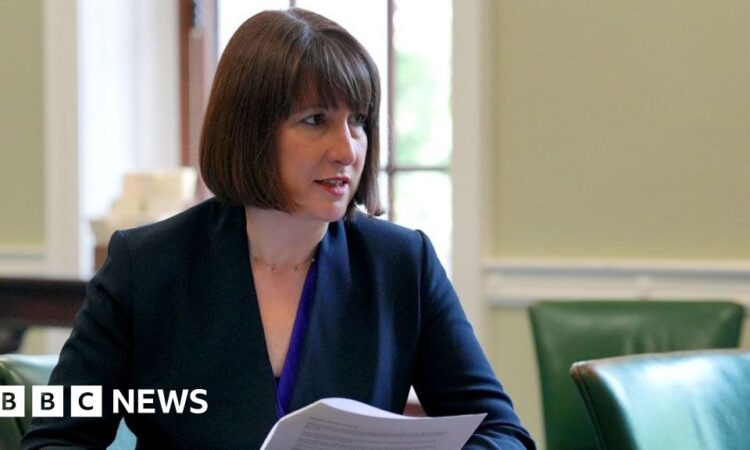
The new chancellor is set to use an audit of public spending to make claims of a “black hole” in the government finances worth tens of billions of pounds.
Rachel Reeves said she would give a statement to Parliament on Monday showing “honesty” about the scale of the challenge faced by the new Labour government.
She vowed to “fix the mess we inherited” but would not confirm speculation that the gap in the public finances stood at more than £20bn per year.
The Conservative Party accused the new government of “peddling nonsense”.
Labour will suggest the Conservatives left various crucial public services unfunded in areas from public pay to prisons.
“On Monday, the British public are finally going to see the true scale of the damage the Conservatives have done to the public finances,” a Labour source said.
“They spent taxpayers’ money like no tomorrow because they knew someone else would have to pick up the bill. It now falls to Labour to fix the foundations of our economy and that work has already begun.”
However, Conservative shadow chancellor Jeremy Hunt said Labour’s claims were “nothing but a fabrication” and accused the government of “laying the ground for tax rises”.
Pay deals
On Monday, Ms Reeves will also set out the government’s response to the public sector pay recommendations, which are about 3% higher than in current spending plans.
The chancellor is likely to accept some above-inflation pay settlements for public sector workers after being warned by independent pay bodies about recruitment and retention challenges, and calculating that the public is keen to draw a line under months of rolling strikes.
Cabinet ministers have spent the week saying a thorough look at their departmental books has revealed more “severe” problems than previously anticipated.
The opposition says this is an elaborate effort to butter up the public for some tax rises at the Budget in the autumn.
The “black hole” arises because the government says it must spend extra money to keep public services functioning.
However, governments draw up their own rules on how much they should borrow to fund public services like the NHS and how the country’s debt is managed.
Paul Johnson, director of the Institute for Fiscal Studies think tank, said it was difficult to know how big the gap in the public finances was, because it depends on how much the government wants to spend.
Labour has pledged not to raise taxes “on working people” including most aspects of National Insurance, income tax and VAT.
“Big tax increases, given the constraints they’ve put on themselves, aren’t impossible, but they’d be pretty difficult,” he told BBC Radio 4’s Today programme.
The extra money the government needs to find to meet self-imposed targets around debt in the future has been labelled the “black hole”.
Some economists suggested during the election that many of these spending pressures, and the possibility taxes would need to be raised to fund them, were obvious and should have been made clear to the voting public.
While the BBC understands there will be no tax policy announcements on Monday, the implication of the audit is that the Treasury will spend the summer trying to find extra savings, or extra taxation revenue, to fill this “black hole”.
A more optimistic economic outlook from the independent forecaster the Office for Budget Responsibility on the impact of the government’s plans would also help improve some tricky trade-offs between spending and tax rises.






